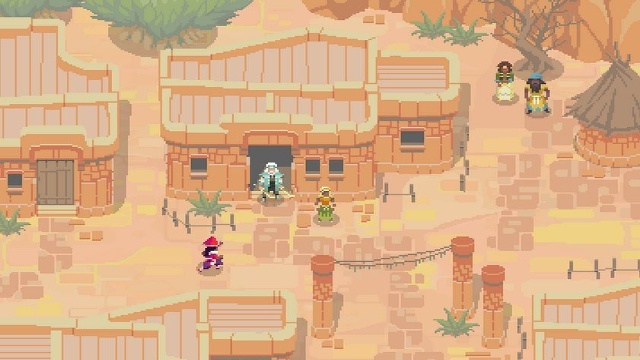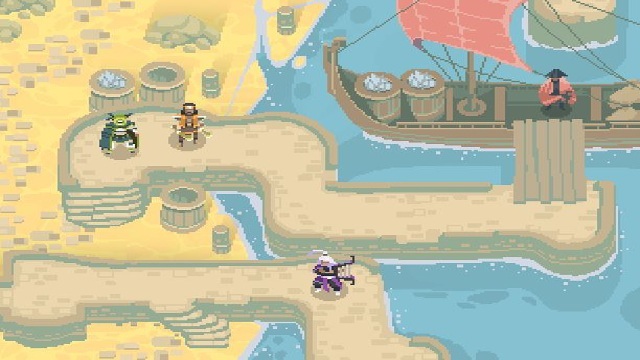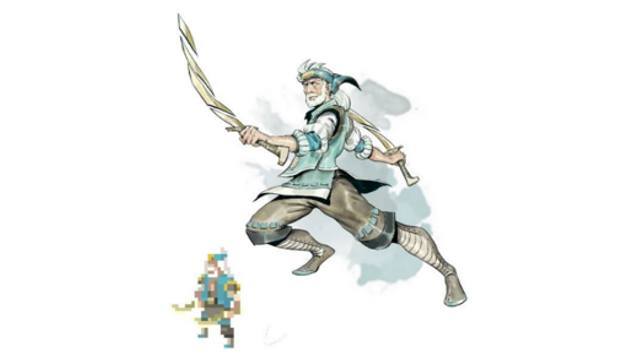About a year ago, I was browsing around on Kickstarter for nothing in particular, and I happened upon Moon Hunters by Kitfox Games: a top-down co-op action RPG (some of my favorite words and abbreviations in the English language). After I took a gander at the campaign video, I came away very impressed with what I saw and put the game on a little mental note in my head and tucked it away.
I had a feeling I would be seeing and hearing about it in the future. I just didn’t know I would actually be speaking to the game’s lead developer a year later. But lo and behold, life is nice like that sometimes, and Tanya X. Short herself was gracious enough to answer a few quick questions about the game’s design philosophies and the struggle for relevancy in such a competitive space.
GameSkinny: What would you define as the foundational pillars of Moon Hunters’ design?
Tanya Short: Well, on our developer wiki, we define that the core experience is to “live the mythology of a hero”. We decided that our interpretation of that would be based on three main “pillars” of the gameplay: Deeds, Combat, and Reputation. The goal of Deeds is to give the player opportunities to take action and show their personality. Meanwhile, the goal of Combat is to give the player a growing sense of empowerment. And finally, Reputation is all about the satisfaction in and admiration of your accomplishments, and seeing the results of your deeds and combat in the world.
GS: What has been the toughest part about about getting exposure for Moon Hunters?
TS: In the beginning, it felt like we were talking into the wind. It seemed like no matter what we said, it fell on an empty, uncaring world. Even though we were in the first batch of games hosted on the Square Enix Collective, so we got more attention than most, our social media community and newsletter grew rather slowly… and it’s easy to compare yourself to games with much bigger, more successful marketing campaigns. Even when our Kickstarter was doing really well, we found it difficult to get anyone’s attention — the indie scene is just so crowded with amazing games! It’s still unclear how much exposure we’ll get for the launch… I think at this point I’ve probably sent over a thousand unanswered emails to journalists about Moon Hunters. But we just have to keep on keeping on, and trying to do our best, even when it seems pointless.
GS: On Kickstarter, your initial funding goal was $45,000. But you ended up shattering that and getting over $178,000. What do you think were the biggest reasons you were successful in getting that kind of funding?
TS: I think it was roughly half planning and half luck. The things we did right in planning were fairly common: we were gathering our fan-base on social media and a newsletter for 6 months on Moon Hunters before we launched the Kickstarter, we had a game concept that was easy to understand through animated gifs, and we very thoroughly studied both successful and failed campaigns for what kinds of tiers, language, illustrations, and videos attracted customers. Some campaigns get a lot of press coverage; ours didn’t. Ours was primarily through Twitter and Facebook referrals, and a surprisingly large percentage (37%) were from people browsing Kickstarter. And then I’m sure part of it was that we had good timing, the stars were aligned, a butterfly sneezed, etc.
GS: This is probably a really hard question to answer succinctly, but how hard is it to know exactly what you need from crowdfunding? And how much preparation goes into making a campaign?
TS: Well, games cost a lot of money. Just paying four people’s salaries for a year (you know, not making them go into debt or default on their student loans etc) is…a lot of money. So, chances are that unless you’re someone famous, how much money you need from Kickstarter is irrelevant…for us, we saw that we could make it to early access, but a Kickstarter of $45,000 would help us delay the game until a real launch. It would give us two months worth of limping time to release something less buggy and more complete. Plus, a successful Kickstarter would be a good argument to invest that extra debt and whatnot, since we would have proof that someone was looking forward to it. I once said that based on my (extremely positive) experience, I felt that in the future, every game would be Kickstarted. There’s very little risk (at least, compared to the risks of making a game in the first place), and so much to gain, even just from a visibility standpoint.
As for preparation, it depends on the project! We probably spent a month or so total. I spent two weeks working on the tiers, the text, the video script, press contacts, etc… the artist spent a week on special Kickstarter assets, the programmers had an extra couple of weeks of prototyping specific features and effects for the video footage. We also contracted a videographer to help us with the interview portion of the video and make it feel professional. Of course, none of that counts the months of Facebook posts, tweets, newsletters, and strategy research…
GS: Why did you choose a pixel art style for Moon Hunters?
TS: We had a few reasons. The number one reason was a love of pixel art as an aesthetic, and feeling like there was room enough to explore beauty there that nobody else was touching. I mean yes, there are LOTS of other pixel art games, of course, but most of them aren’t pushing the envelope in trying to render lighting, shadows, particles, and a world that’s different every time. We’re not trying to emulate a Super Nintendo or copy some other specific game’s style — we’re trying to do something uniquely our own, using pixels as just another kind of paintbrush. Plus, we were influenced by the ambitious scope of the game — we knew that a game about mythology and a hero’s journey was just about out of reach for a tiny little team like ours, unless we found a way to represent that world quickly. We feel pixel art functions as a beautiful abstraction of meaning, invoking the essence of a character or a place the same way an ancient ink drawing might do. So in a way, it fits the mythological theme of the game, in blending the old and remembered with the new and shiny. What is heroic mythology if not an ancient, bone-deep nostalgia?
GS: What are you most proud of about Moon Hunters?
TS: At PAX, I had a backer come up to me and say, “Tanya! I backed this game a year ago! I just played it…and thank you for making my dreams come true!”
I almost cried.
So far, it seems we’re successfully delivering on our promise to our fans, and that really makes me crazy-proud of my team.
GS: When all is said and done, how do you want people to remember Moon Hunters?
TS: Ideally, it’d be great if in ten years, everyone said, “Oh yeah! Remember Moon Hunters? That game I bought a hundred copies of and played for a thousand hours! It’s really great that those devs won a Nobel Peace Prize for game development!”
Okay, okay, seriously, I hope people have a fun time exploring the world and really questioning what kind of a person they are. It took me some years before I realized that despite (or because of) the fact that I’m a nice person and want everyone to be happy, I’m not actually as honest as other people, and actually can be a bit cunning. So far we’ve had some playtesters furrow their brow, saying, “What? I’m Brave? Hmm… yeah, I guess I am Brave!” and then start nodding, which I think is the best reaction.
A huge thank you to Tanya for taking the time to answer my questions so thoughtfully and thoroughly. I can’t say for sure if anybody will ever win a Nobel Peace Prize for game development, but that sure would be amazing! Moon Hunters is currently slated for release in January 2016 for Steam and PC and Spring 2016 for PS4 with a release on PS Vita to follow sometime afterwards.










Published: Sep 12, 2015 03:20 pm